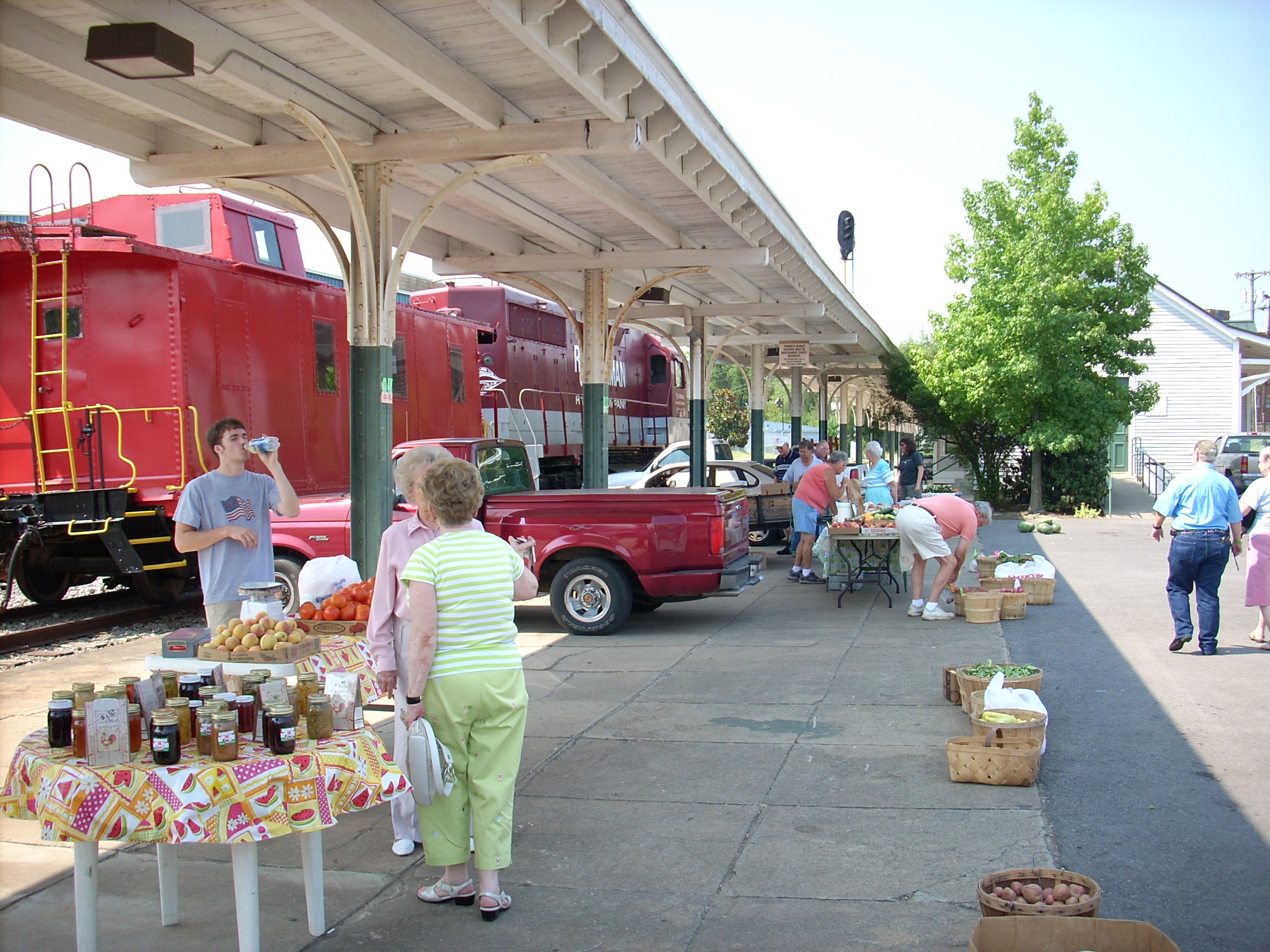 “Due to lack of rain and high temperatures, we are going to close this market for the season.”
“Due to lack of rain and high temperatures, we are going to close this market for the season.”
Several of these hand-printed signs hung from vendor tables at Clarksville Farmer’s Market Saturday morning, a grim testament to the impact the current heat wave and the long-standing regional drought are having on farmers and the availability of fresh local produce.
A handful of vendors stood under the railroad station canopy on Tenth Street, offering a selection of summer squash and zucchini, red and green peppers, okra, red and sweet potatoes, baked good, preserves and homemade pickles, and plenty of fresh peaches and ripe red tomatoes. At 10:30 a.m., it was already about 90 degrees in the parking lot, in the sun.
Paulette Peterson, market organizer, said it is the first time the market has ever had to close this early. “It’s sad. But everything is drying up and dying. There’s not much left to sell.”
Retired car dealer Eddy Kingins has been working the farmer’s market since his retirement, selling produce he grows himself. (Pictured from left, Sherry Kingins, Cameron Taylor and Eddy Kingins)
“I was in the car business for 38 years,” Kingins said. “I retired, and started doing this.” He loves the work and the “people contact” that the market offers.
“But there’s been no rain. So everything is all dried up. Everything in my garden,” he said. He has attended the Amish farm auctions in the hopes of acquiring additonal produce there, “but the Amish [produce] is all dried up too.” When he can find fresh produce and tried to broker a deal, he finds that prices have skyrocketed.
Even if it rains for a week, it’s too late to save the season, he said. While most of the South is in a period of prolonged drought, that drought has hit “extreme” levels in middle and western Tennessee, destroying crops, killing trees, and creating a secondary danger of brush fires. With daytimes highs staying steadily above 90 degrees, and multiple days with highs in excess of 10o degrees, mid-state Tennessee is “cooked.”
“Green beans that were selling for $14 a bushel are $32 a bushel not [at auction],” Kingins said. “Prices are sky high even at the Amish sale.” It leaves vendors such as the Kingins with nothing left to sell.
Kingins wife, Sherry, said the problem is not confined to the produce market. Farmers raising cattle for beef, along with dairy farmers, are facing staggering increases in the cost of hay and feed. “Milk and beef prices are going to go sky high” Sherry said. “Bales of feed hay that cost $15 or $20 dollars are going for $75 to a $100.” It will have a trickle down effect on the prices we pay for everything come fall and winter, she added.
So Kingins, Sherry and their grandson, Cameron Taylor, who helps out his grandparents “whenever I have the chance,” sit in the already warm shade, taking turns waiting on shoppers seeking out their vegetables, preserves and canned pickles, and saying goodbye to a summer sojourn that is ending too soon.
This morning at the railroad station, tables were set up at carefully numbers spaces. Vendors displayed bins and bushel baskets of what was left from their gardens, and conducted the market-fresh buying and selling for one last time this summer.
They are hoping for a better season next year.


Most farmer’s Market vendors sell not only what they grow but other items bought at farmer’s auction or from other people. One vendor may grow beans and squash and tomatoes, then buy corn, peaches, homemade preserves,pickles, honey or baked goods from someone or somewhere else for resale to round out their table. Some may grow it all, but not everyone can grow everything; Farmer’s Markets are a business and larger vendors address supply and demand just as any other business does. In New England, most markets also sell cut flowers, garden plants, and even handmade quilts. Buy wholesale or at auction, sell retail or on consignment.
If anyone has any hay for sale, I have 5 horses and this season is really hurting us. Please let me know if you know anyone with any for sale. Thanks.
I thought I would comment on what Mr. Mack stated. The story is about the heat and how it has effected the growing season. No water, lots of heat, therefore no crops growing.
All people earning a living in this manner at this point and time are forced to supplement their merchandise any way possible. So yes, you are knit picking the story.
The writer is reporting the news and the family featured in the story are earning a living in the unbearable temperatures daily. Consider others feelings before implying unjustly. I would hate the job they are doing and wouldn’t be caught outside in these temperatures. God Bless those who do!!
(Be weary of those with an unjust opinoin.)